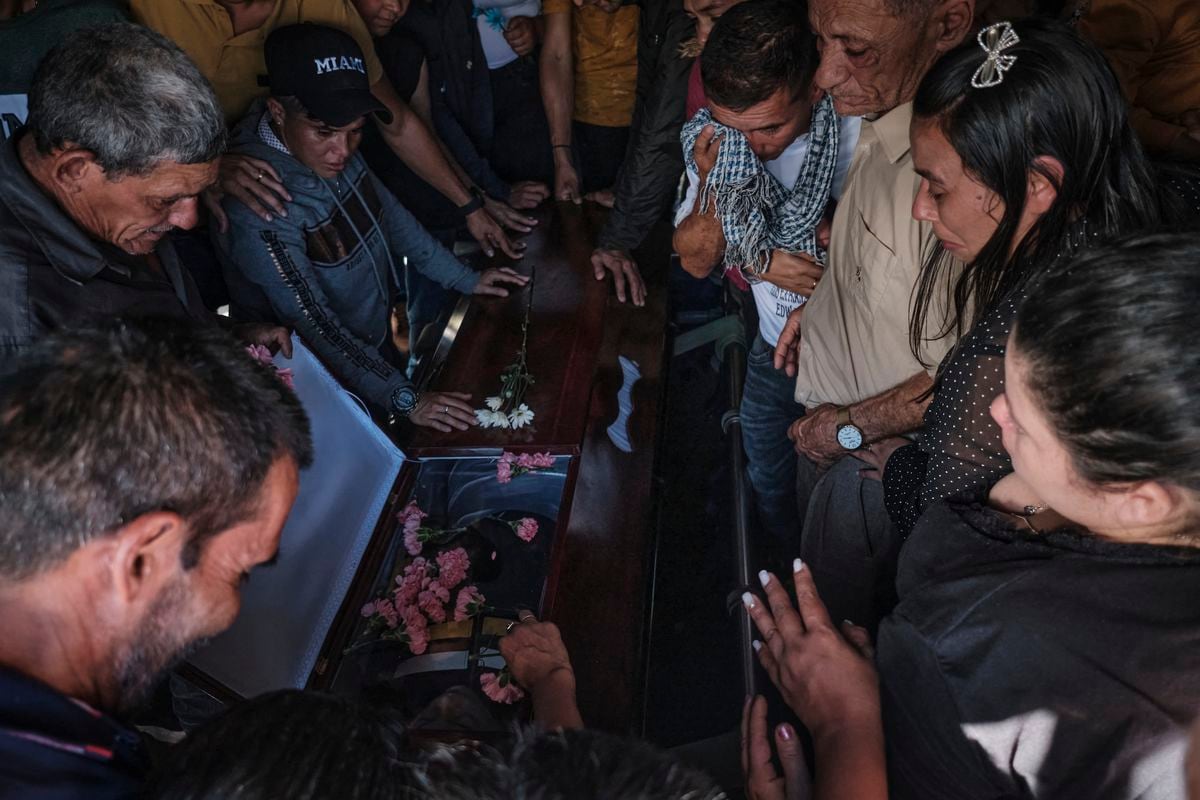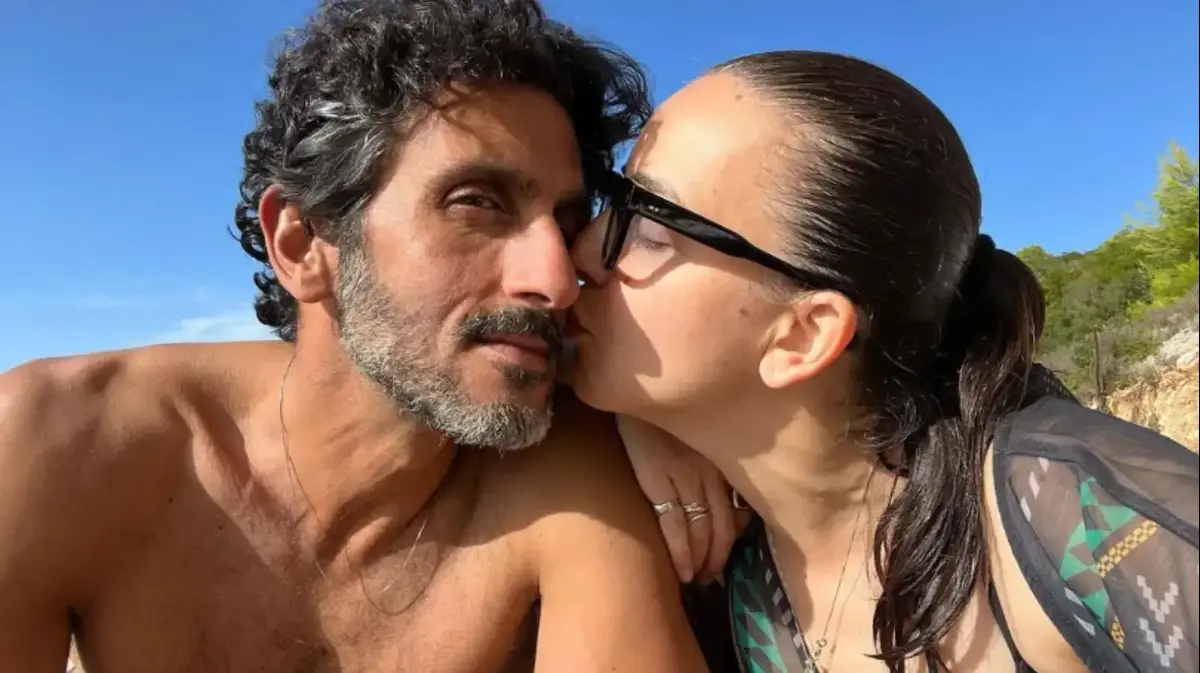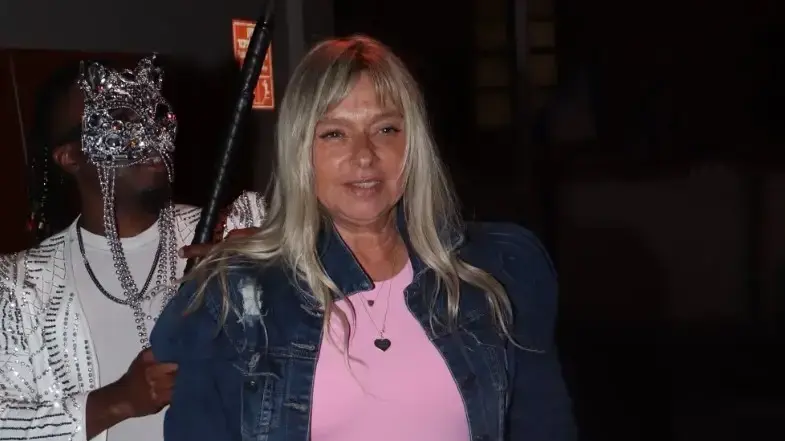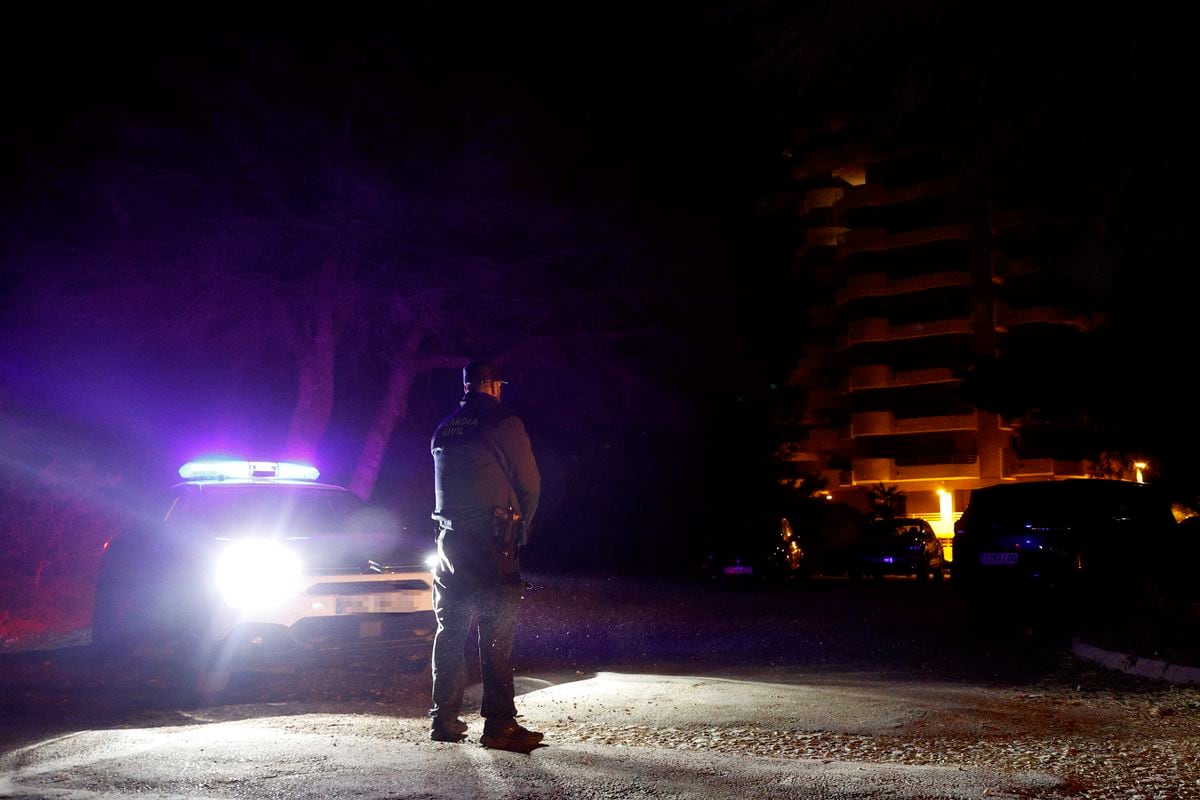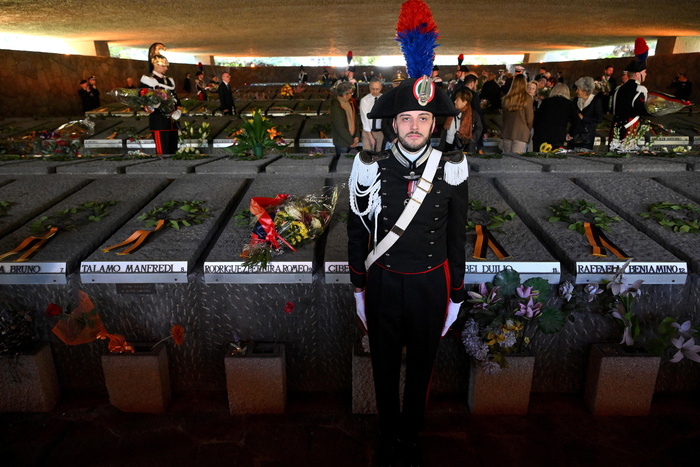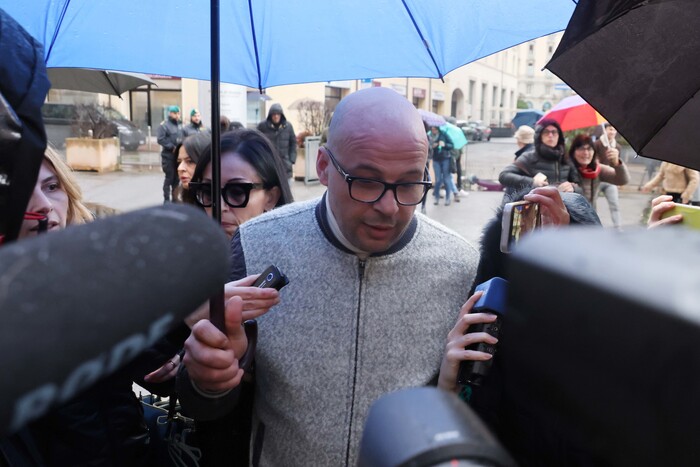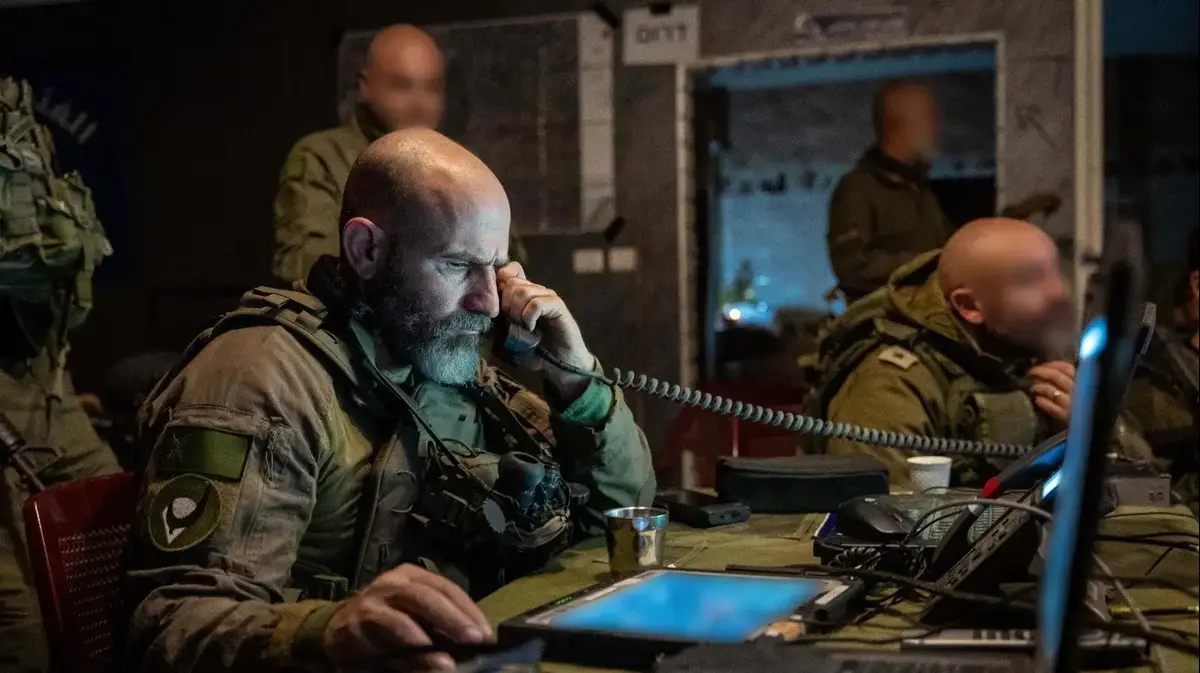Miguel Vaca is convinced that a swarm of white snakes that enveloped him in a dream was a premonition of the massacre.
His son, his wife and another couple were murdered days later.
He woke up restless, confused.
He lasted with the bad omen all day.
“What will that dream mean?” he asked his wife.
"It could be gossip," she replied without giving it much importance.
He now believes that a soul was warning him.
The first massacre of 2023 in Colombia was committed on January 1 between Río de Oro (Cesar) and Ocaña (north of Santander, during a birthday celebration. It killed two married couples, one of them the parents of two four-year-old twin girls, now orphans. The girls, Miguel's granddaughters, witnessed the event. There are no signs that the two fugitive hitmen, perpetrators of this multiple crime, are paramilitaries or guerrillas. They acted armed with a revolver with four bullets and knives.The police commander talks about a possible "settling of scores" that he has not been able to corroborate, and the town, meanwhile, remains silent.
Eduard Vaca, one of the victims, was 35 years old.
Near the final hour, she called his father.
"Dad, where is he?"
she asked him.
"Here, at home, son, having a few drinks," Miguel answered.
"Dad, wait for us.
Now I'm going to go with Mildred so we can have a few beers —Mildred, her wife, was also murdered.
I hug the mother of Mildred Ortíz Perez during the wake at her home in Ocaña.
Ferley Ospina
Tired of waiting, he lay down to sleep.
Telephone ring.
A strange voice on the other end of the line: "Are you Miguel Vaca?"
"Yes, he talks to him," she replied.
The news they gave him immediately made him faint in bed.
That seemed like a hallucination.
Miguel is 70 years old and has been making pottery for 50 years.
He has a red face and rough hands, tanned by the sun and work.
In the eighties, some men armed with pistols threatened him, condemning him to exile.
He arrived displaced to Ocaña, with his young children.
His wife had died of leukemia at the age of 33.
With sweat on his back, Miguel raised his children alone.
"He led a very sad life," he recalls and bursts into tears.
Registered in the extreme poverty database, he assures that he does not receive help from the Government.
Only last year, the Ombudsman received more than a thousand statements from victims.
Displacement is the most common crime in Ocaña.
When his children grew up, Miguel taught them how to make bricks and soon several of them took up the trade.
Eduard Vaca Pacheco served in the military and later made a living among pottery, masonry and various jobs.
Since he had gone to live in free union with Mildred Ortiz, 29, he helped her in one of the billiards owned by the family.
They had twin girls, now four years old.
Miguel intensely evokes his son Eduard's willingness to help him, his affection, his courage.
“My son was good-hearted.
You can ask everyone: he has no record anywhere.
He was a good person,” he says.
Miguel cannot explain why his son was killed if neither he nor his family have harmed anyone.
He worries that his son's name will be tarnished.
In Colombia, a violent country, the belief that there are justifiable crimes prevails.
Former President Álvaro Uribe himself has referred to homicide victims as "good dead."
Relatives take the coffin of Mildred Ortíz Perez to the place where she would be buried in the Ferley Ospina cemetery
"So much fighting with your children so that criminal hands take them away," Miguel laments.
The bodies have been handed over three days after the massacre.
To do the necropsy they had to move them to Bucaramanga, five hours from Ocaña.
Outside Miguel's house, there are people sitting on plastic chairs.
They shelter from the sun under a tent.
The men drink traditional brandy from the region.
In the living room of the small house there are photos stuck on the wall: Eduard and Mildred carrying the girls, Eduard and Mildred embracing, Eduard cooking, Eduard posing under a palm, Eduard when he smiled.
There is a crucifix, candles, and white and yellow chrysanthemums.
His father has decided to seal the coffin with Vinipel paper so that nobody uncovers it.
Miguel hoped to see his son dead as if he were asleep.
“But they disfigured his face a lot, they finished him off.
I am in great pain, ”he says, exhausted from crying.
Since he found out about the tragedy, he has had trouble sleeping, he eats little.
His family watches over the coffin, but several days have passed and the corpse takes too long to be buried.
It's Thursday, January 5th.
The hearse travels the steep streets.
People leaning out of the doors of the houses see him go by.
The somber procession that follows the coffin contrasts with the happy people and the colorful clothes on the corners.
Those stationed on the platforms throw water, foam and cornstarch at those who pass by.
On those days carnivals are celebrated and some streets are closed.
Whistles, music and folk groups everywhere.
There are car contests with the most powerful baffles.
Joy ignores what sadness knows.
Ocaña, with approximately 120,000 inhabitants, was founded by the Spanish crown in 1570. It is located on one of the entry routes to the troubled area of Catatumbo (bordering Venezuela), where an enormous amount of coca leaf crops and laboratories for the production of cocaine.
A diverse array of criminal gangs are fighting each other: paramilitary squads like the Clan del Golfo, the pro-Cuban guerrilla ELN (National Liberation Army) and a couple of divergent groups from the former FARC, which refused to accept peace accords signed six years ago. years with the then president Juan Manuel Santos, but now they seek to benefit from Gustavo Petro's total peace project.
Ocaña's economic life revolves fundamentally around state employment, agriculture,
Panoramic of the city of Ocaña, Colombia.
Ferley Ospina
During the funeral ceremony, Miguel Vaca vanishes over his wife's shoulder.
The daughter touches her cheeks, but she does not respond.
"Dad dad?".
She opens his shirt and, at the same time, a dozen people start to fan him.
Pale, he tries to answer by half-opening his eyes.
Beads of sweat run down his forehead.
His body is broken, without strength.
Several men take him out into the garden.
They apply alcohol to him, but he still does not react.
The anguish of the family increases.
They bring him water and oral serum.
Miguel begins to move and is coming back to himself, little by little.
The night before he had taken a drink to bear the grief.
The priest, dressed in a purple chasuble, continues with the mass.
Minutes later, Miguel's wife collapses.
The oppressive scene repeats itself: her livid face, the crowd around her, the threat of another death.
While Miguel and his wife try to recover outside, Mireya, Eduard's sister, goes up on stage and speaks:
—More than a brother, he was like my son and he had no enemies.
They killed my son,” he says, his eyes swollen and red from crying.
You're going to heaven and I know my mom welcomes you with open arms —her hands tremble and she gasps for air.
They help her down from her, holding her in her arms and the ceremony ends.
Among the columbariums of the cemetery, hugs merge with lamentations.
To avoid the risk of decomposition, the body of Mildred, Eduard's wife, was buried on the afternoon of Wednesday, January 4.
A dozen people wore a T-shirt with the faces of the spouses and the legend "We will remember you forever."
The priest lamented the death, asked "for his eternal rest" and invited him not to be remembered with pain but in moments of happiness.
Funeral rituals focus less on the suffering of the living than on the souls of the dead.
About to bury her, her relatives crowded around the wooden crate and beat it repeatedly, clinging to it.
The screams grew in crescendo as the coffin was lowered into the earthen pit.
One of the victims of the massacre had a birthday.
Marlene Villamizar celebrated her 55th to the sound of vallenatos, beers and a chicken stew.
She and her husband, Rodrigo Meza, look corny and happy in the photos that were taken that afternoon on January 1st.
The Estadero El Pentágono, where the massacre occurred, is a ranch located on the narrow and winding highway that goes from Ocaña (Norte de Santander) to Río de Oro (Cesar).
Next door is a car workshop.
With a zinc roof, wooden walls, and bamboo fences, it had tables, plastic chairs, a refrigerator, and loudspeakers.
The couple had lived there for 18 years and paid 150,000 pesos (around $25 at today's value) for rent.
In times of pandemic, when the business was forced to close, they came to pay 80,000 pesos (16 dollars).
Rodrigo Meza and Marlen Villamizar's pet waits in the place where they lived. Ferley Ospina
That day, the premises were not open to the public.
The guests were friends of the administrators, all acquaintances.
Mildred arrived with Eduard and the girls around noon at the invitation of a friend who left half an hour before the massacre.
In a photo that was uploaded to WhatsApp status, Mildred is seen happy, singing, with a glass of beer in her hand.
The last group photos were taken at 5:08 in the afternoon.
The guests began to leave and only Marlene, her 11-year-old grandson, Rodrigo, Mildred, Eduard, their daughters and two other guests remained.
Around six in the evening, two hitmen arrived on a motorcycle.
They parked it in the dirt yard and entered the place.
They ordered a liter of beer and sat at one of the tables, next to Rodrigo and Eduard.
Marlene brought the beer and the men served it to them in plastic cups.
Those who were left at the party were already drunk.
Eduard had his back to him and Rodrigo, in front of him, talking.
The twin girls played and ate sweets.
What happened next is unclear and will need to be further investigated.
The version of one of the witnesses and the Police is as follows: one of the murderers got up and shot Eduard in the head from behind.
Rodrigo, Marlene's husband, got up to protest and three shots were fired between his chest and abdomen.
The victims fell to the ground.
The hitmen only had four bullets.
They used a 38-caliber revolver, typical of common criminals and not of large criminal groups such as the guerrillas or the paramilitaries.
The women screamed in terror.
One of the twin girls ran off along the side of the road;
the other hid under a table from where she watched the unfolding of the tragedy.
The hitmen drew daggers and attacked Marlene, who died immediately.
A dog intervened barking and was also stabbed.
Mildred ran to the only room there was and tried to hide under the bed, but the knife from one of the hitmen hit her.
She died at the hospital.
The hitmen fled the place and so far there are no captures.
The massacre occurred hours after President Gustavo Petro announced a bilateral ceasefire with five armed groups in his "total peace" project.
When the Police arrived at the crime scene, there were bottles on the floor and overturned tables, which seems to indicate that there was a struggle.
The place is cordoned off with security tape.
Five dogs and two cats appear at the meeting.
There are few traces of blood because the place was washed two days after the massacre.
Relatives of Mildred Ortíz Perez, await their turn to say goodbye to the body during the vigil. Ferley Ospina
A police agent said that in Colombia they kill for up to 100,000 pesos (20 dollars) and there are businesses that rent weapons that are used by hit men.
The authorities are offering a 50 million ($10,000) reward for information that leads to clarifying the massacre.
The version of the Police is that they were only going to kill Eduard and the other victims were circumstantial.
The motive hypothesis that they have raised up to now is “reckoning”.
In the world of crime, according to Colonel Luis León, commander of the Cesar Police, it is a way of collecting business between criminals.
For the families of the victims this sounds re-victimizing and they ask for justice.
An agent from Río de Oro, who had to respond to the emergency, says that what happened was not a massacre, but a "collective homicide."
In Colombian criminal law, massacres are not criminalized, but neither is “collective homicide” or “multiple homicide”.
There is murder.
Former prosecutor Ángela María Buitrago believes that this figure arose a few years ago to reduce the impact of the events that were taking place and that were referred to in the media as massacres.
The twins do not fully understand what has happened to their parents.
They ask about them all the time.
Their relatives have covered up their absence with small lies, they are working, they will arrive shortly, but soon they will have to face the only truth: they are not coming back.
Subscribe here
to the EL PAÍS newsletter on Colombia and receive all the latest information on the country.

